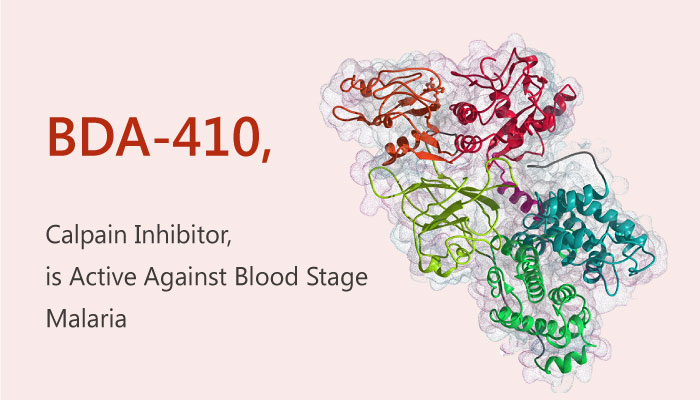Malaria is one of the most important parasitic infections of humans and is responsible for over a million deaths each year. Scientists have extensively investigated the malaria parasite cysteine proteases as key mediators of hemoglobin degradation during the blood stage infection of malaria parasite. In particular, cysteine proteases play a critical and non-redundant role in the parasite life cycle. Hopefully, reaearchers have reported a series of novel and potent cysteine protease inhibitors as potential anti-malarial agents. Gratifyingly, the promising anti-malarial drugs would be soluble, stable, and membrane permeable, with high selectivity towards cysteine proteases.

In the present study, Xuerong Li, et al evaluated the anti-malarial effects of BDA-410. BDA-410 is a novel cysteine protease inhibitor as a potential anti-malarial drug. They use recombinant falcipain (MBP-FP-2B) and P. falciparum trophozoite extract containing native falcipains for enzyme inhibition studies in vitro. As a result, the IC50s of BDA-410 are 628 and 534 nM for recombinant falcipain-2B and parasite extract, respectively. In vitro, BDA-410 inhibits the malaria parasite growth with an IC50 value of 173 nM. The effect causes irreversible damage to the intracellular parasite. Besides, Xuerong Li, et al evaluated the effect of BDA-410 on the malaria parasite development in vitro as well as its anti-malarial activity in vivo using the Plasmodium chabaudi infection rodent model. Moreover, BDA-410 delays the progression of malaria infection significantly using a mouse model of malaria pathogenesis.
All in all, BDA-410 is an important lead compound for the development of novel anti-malarial drugs.